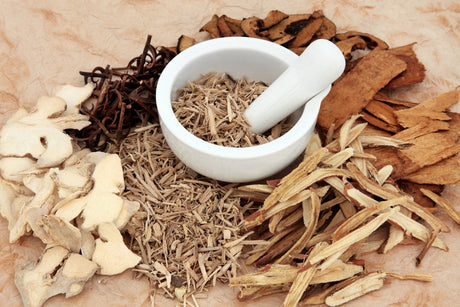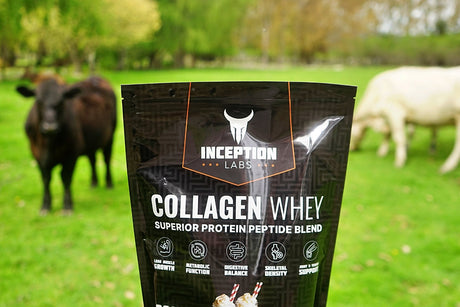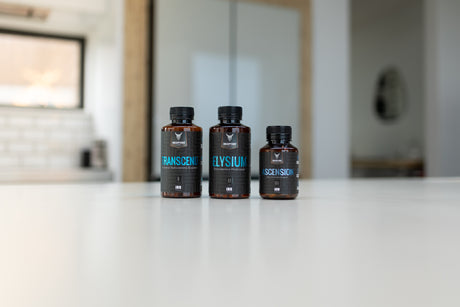The human body is a fantastic machine, and the immune system is one of its most important components. The immune system is a complex network of cells, tissues and organs that work together to protect the body from disease by identifying and attacking foreign invaders, such as bacteria and viruses. However, the immune system can sometimes become overloaded and unable to function correctly when we are exposed to too many foreign invaders at once or when our bodies are under stress. Winter can be a particularly challenging time for the immune system, as cold and flu viruses circulate more widely. The winter months often also coincide with increased stress levels, owing to factors such as reduced daylight hours and weather conditions.
The colder months of winter typically see an increase in respiratory tract infections, as people spend more time indoors and in closer proximity to one another. This results in a higher risk of transmission of viruses like influenza and the common cold. However, recent research has suggested that we may see an even greater impact on our immune systems in the winter of 2022. Scientists believe that this will be due to a combination of factors, including the ongoing pandemic. The pandemic has resulted in widespread feelings of anxiety and stress, which can weaken our immune systems. At the same time, lockdowns and border restrictions have meant that New Zealand has been cut off from the new strains of virus that typically arrive through our international arrivals terminals for the past two years. As our borders reopen and traffic light restrictions ease, healthcare providers anticipate epidemics of influenza and whooping cough, along with Covid-19.
While there is no sure way to prevent attacks on the immune system, it is important to be aware of the potential risks this winter and take steps to help keep your immune system strong.
We’ve collated our top tips for boosting your immunity this season:
Maintain a healthy balanced microbiome
Your microbiome is the collection of all the microbes - bacteria, archaea, fungi, and viruses - that live on and in your body. These microbes play many vital roles in your health, including helping to digest food, produce vitamins, and protect you from harmful pathogens. Your microbiome is unique to you and changes over time, depending on factors such as diet, exercise, age, and exposure to antibiotics. The composition of your microbiome can also influence your susceptibility to certain diseases. For example, studies have shown that people with a more diverse microbiome are less likely to develop allergies and asthma.
Interestingly, the composition of your microbiome may also affect how well your body withstands the cold and flu season. One study found that people with a more diverse microbiome were less likely to catch a cold after exposure to the rhinovirus (the virus that causes the common cold). The authors of this study speculated that the microbes in a diverse microbiome might help to train the immune system to recognize and fight potential pathogens.
This article discusses the gut microbiome and ways to correct imbalances for improved health and wellbeing.

|
| ATP Science Gutright |
Consume a full spectrum diet
A diet that lacks essential nutrients can impair the function of the immune system and make an individual more susceptible to infection. Conversely, a diet that includes a wide variety of nutrient-rich foods can help to support immune function. Research has shown that full spectrum diets are associated with increased levels of immunoglobulins (Woof, 2006), which are proteins that play a key role in immunity. Full spectrum diets are also associated with higher antioxidant levels, which can help to protect cells from damage. In short, a full spectrum diet is an essential factor in maintaining a healthy immune system and is necessary for any athlete who wants to perform at their best.
Several key nutrients play an influential role in supporting immunity. Vitamin A is important for developing immune cells, while vitamin C helps protect these cells from damage. Similarly, selenium is an essential trace element that helps to protect cells from oxidative stress. Vitamin E is another important nutrient for immunity, helping to protect cells from damage caused by free radicals. Zinc is involved in producing cytokines, which are signalling molecules that help regulate immunity. Finally, iron is essential for the function of immune cells. While all of these nutrients are important for immunity, it is worth noting that they must be consumed in the correct amounts to be effective. Too much or too little of any one nutrient can negatively affect immunity. Therefore, it is imperative to consume a diet containing a variety of foods rich in these nutrients or take a daily supplement that ensures adequate intake.
We recommend:
 |

|
| ATP Science Vital Food Capsules | ATP Science Vital Food Powder |

|
| Optitune Nutrition Immunity+ |
Ensure you get enough sleep
When we sleep, our bodies produce cytokines, proteins that help regulate the immune system and are essential to fighting infection and inflammation. Cytokines also support recovery from illness and injury by promoting tissue repair. In addition, sleep helps regulate the production of white blood cells, which are the body's primary defence against infection. Without adequate sleep, our bodies cannot produce these immunological components, making us more susceptible to colds and other ailments. In one study, people who slept fewer than six hours per night were four times more likely to catch a cold than those who slept more than seven hours per night (Besedovsky, 2015). A single night of insomnia can decrease the production of immune cells by as much as 70%. This demonstrates that chronic insomnia can significantly impact our ability to fight off infection and how crucial sleep is for maintaining a robust immune system.
By making small changes to sleep habits, you can improve the quality of your sleep and support your immune system function. Those who struggle to achieve the necessary quality and quantity of sleep may consider a sleep aid such as Kodiak Sports’s Anabolic Coma for scientifically formulated sleep support.

|
| Kodiak Sports Anabolic Coma |
Stay active
According to recent research, regular exercise may be one of the best ways to boost immune function. There are several mechanisms by which physical activity can impact immunity. One is through its effect on the gut microbiota. The microbiota is a complex community of microorganisms that live in the gastrointestinal tract. Exercise has been demonstrated to increase the diversity of the microbiota, leading to a more robust immune system (Bermon, 2015). Another mechanism is through the release of immunomodulatory molecules, such as cytokines and chemokines, which help to regulate immunity. Finally, exercise also impacts the nervous system, which plays a role in immunity. For example, exercise has been observed to increase sympathetic nerve activity, leading to increased production of immune cells.
A recent study found that individuals who regularly participated in weight training were less likely to experience upper respiratory tract infections, such as the common cold than those who did not. It is understood that the increased muscular strength and endurance gained through weight training help to equip the body better to fight off infection. In addition, lifting weights has been shown to increase levels of immunoglobulin A, an antibody that helps protect against disease. Research has also shown that weight training can help to improve sleep quality (Kovacevic, 2018), and adequate sleep is essential for optimal immune function.
While it can be enticing to rug up at home during those extra chilly days, getting out and hitting the gym may be one of your best defences against those winter chills.
Stay hydrated
Proper hydration is essential for overall health and wellbeing, and it is especially important for maintaining a strong immune system. The human body is approximately 60% water, and every system in the body depends on water to function correctly. Water aids in transporting nutrients and oxygen to cells, regulates body temperature, and lubricates joints. It's also essential for cognitive function, cell regeneration, and detoxification. When the body is even slightly dehydrated, these essential functions are impaired. Studies have shown that even mild dehydration can decrease white blood cell count, making the body more susceptible to infection. In addition, dehydration can cause fatigue, headaches, and other symptoms that make it difficult to fight off illness. For these reasons, it is important to drink plenty of fluids and stay hydrated, especially when you're sick or trying to prevent illness. By doing so, you'll be giving your immune system the support it needs to stay strong and fight off infection.
Ensure optimal uptake of BCAA’s
Amino acids are the building blocks of proteins and play a vital role in many biological processes. Among the 20 different amino acids, three are particularly important for immune function. These "branched-chain amino acids" (BCAA’s) are leucine, isoleucine, and valine. BCAA’s are essential nutrients, meaning that the body cannot produce them, and they must be obtained from the diet.
BCAA supplementation has been shown to improve immune function in both animal and human studies. For example, one study found that BCAA’s increased the production of immunoglobulins (antibodies) in response to an influenza vaccine. Other studies have shown that BCAA supplementation can improve the function of white blood cells and increase resistance to infection.
There are several mechanisms by which BCAA’s may support immunity:
- They are involved in the synthesis of proteins needed for immune cell function.
- They help to protect immune cells from damage by reducing inflammation.
- BCAA’s may directly stimulate the activity of immune cells.
While BCAA’s are found naturally in foods such as meat, fish, and eggs, supplements provide a more concentrated dose of these amino acids. As a result, athletes who take BCAA supplements may experience greater benefits than those who get their BCAA’s solely from food sources.
Looking for a recommendation? We’re particularly fond of Inception Labs’ Fortitude, which combines BCAA’s with six EAA’s (essential amino acids), providing additional benefits of supporting protein synthesis, cellular repair, energy production, digestion and neurotransmitter synthesis.

|
| Inception Labs Fortitude |
Author
Walley, Elise. 2022. Immunity: Avoiding the ills and chills this winter.
References
Woof, J.M. and Kerr, M.A. (2006), The function of immunoglobulin A in immunity. J. Pathol., 208: 270-282. https://doi.org/10.1002/path.1877
Bermon, S., Petriz, B., Kajeniene, A., Prestes, J., Castell, L., & Franco, O. L. (2015). The microbiota: an exercise immunology perspective. Exerc Immunol Rev, 21(21), 70-79.
Besedovsky, L., & Born, J. (2015). Sleep, Don't Sneeze: Longer Sleep Reduces the Risk of Catching a Cold. Sleep, 38(9), 1341-1342.
Kovacevic, A., Mavros, Y., Heisz, J. J., & Singh, M. A. F. (2018). The effect of resistance exercise on sleep: A systematic review of randomized controlled trials. Sleep medicine reviews, 39, 52-68.










